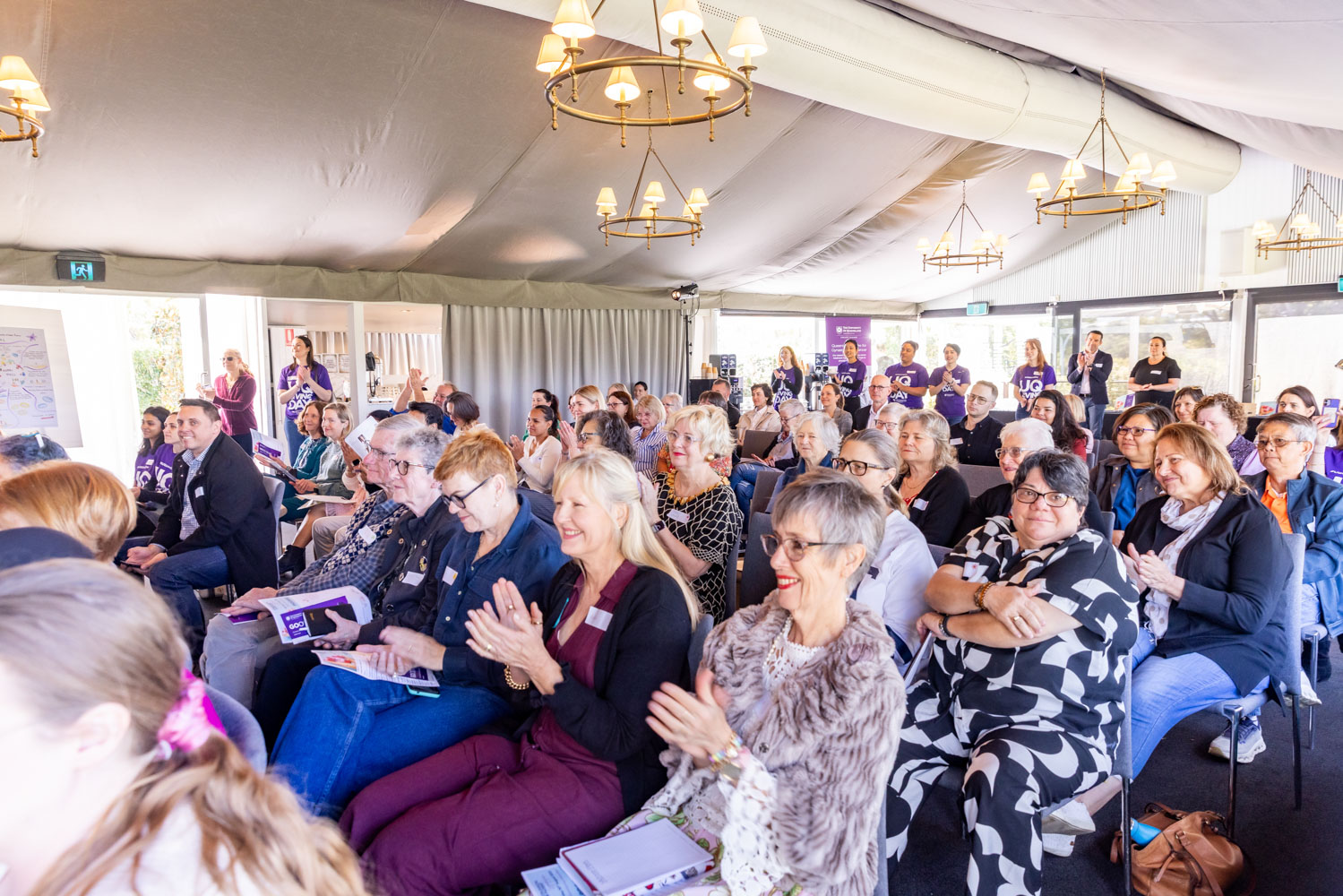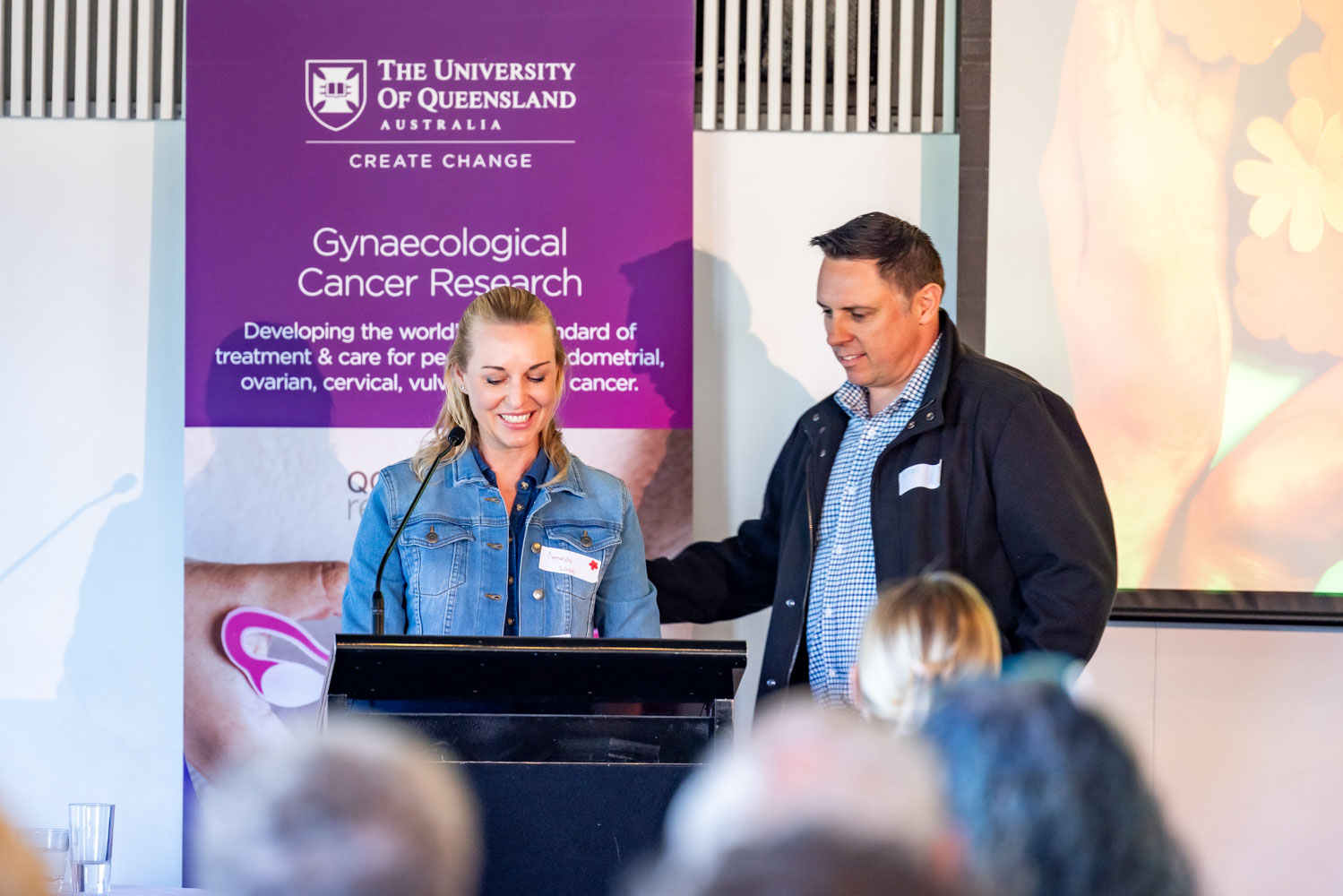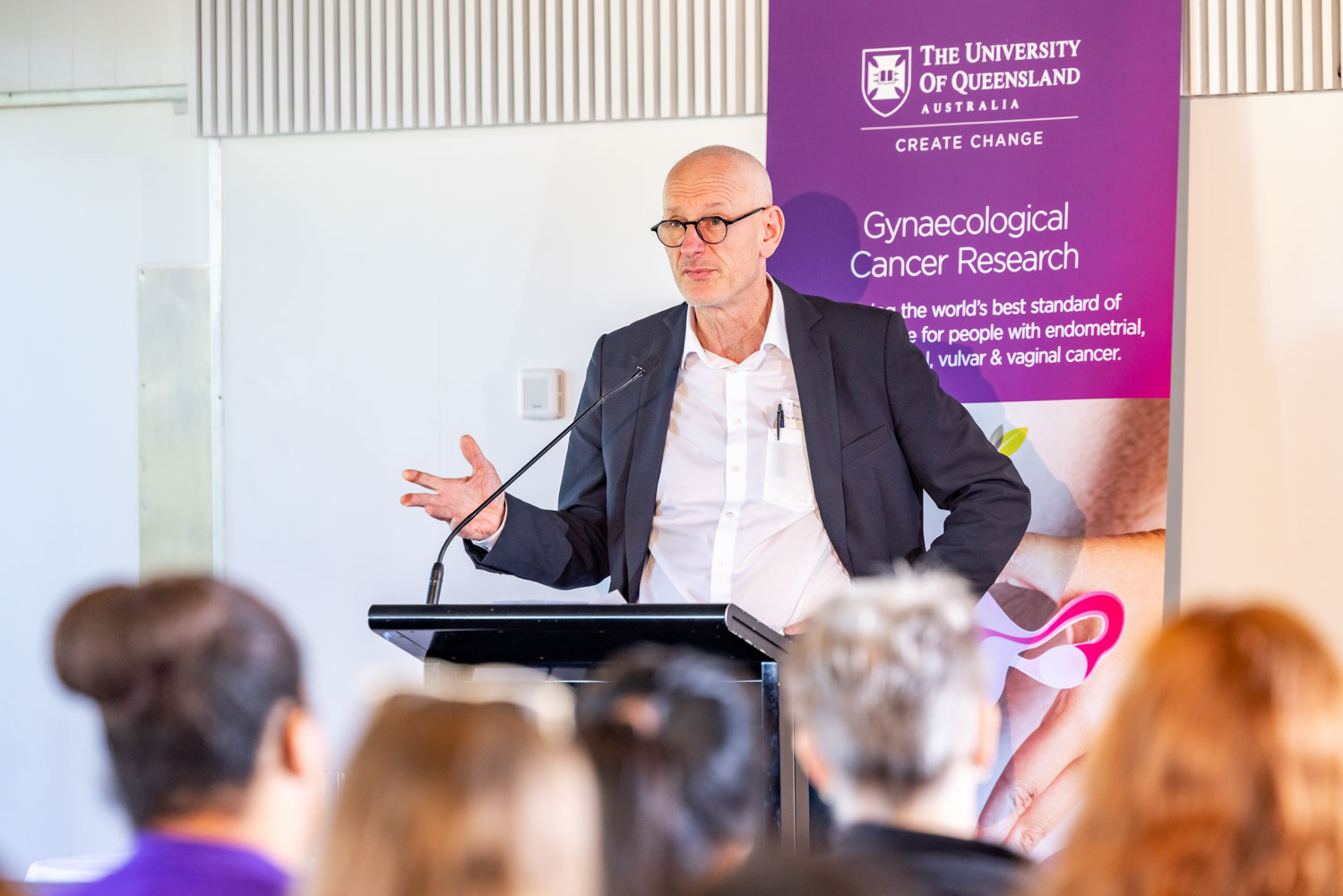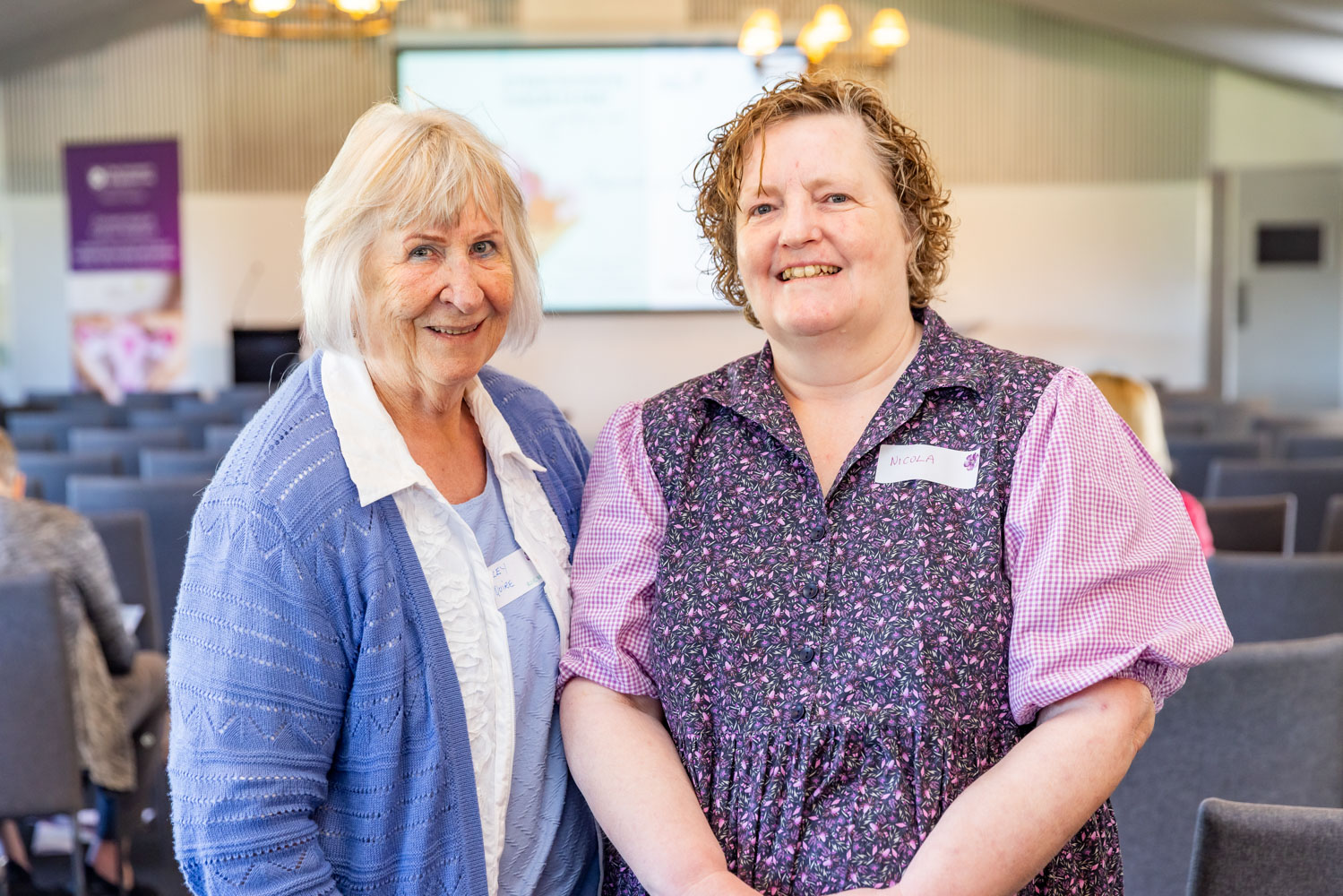My reflections of the Gynaecological Cancer Patient Symposium
Author: Ms Lesley McQuire, Consumer Research Partner
The venue for the symposium provides opportunities for females diagnosed and treated for a gynaecological cancer, their family and friends to hear about the research and listen to the heartfelt lived experiences stories told by women and their carer(s). Networking with both consumers and researchers all working diligently to improve the outcomes for females affected by gynaecological cancers is second to none. Peer support plays a major role in recovery.
When the symposium finished one leaves feeling more confident that the research is in hand and you are not alone.

Sharing a Lived Experience
When a female tells her story related to gynaecological cancer experiences, you can hear a pin drop in the room. No hold bars, the raw emotion and their journey deliver home strong messages such as research can save lives and that researchers can work with women to be open about treatment options. It takes guts and courage to stand in a room in front of a crowd and share their experiences of loss, finding hope, carving out a future and become disease free. Thank you to Amanda and Ryan Webb, and Nicola Du Thaler for sharing their lived experiences with everyone.

Researcher Presentations
Dr Kristen Moloney – options for surgery following an ovarian cancer diagnosis talk and the slides, which identified ovarian cancer tumours was compelling. To know that the research she undertakes will continue to pave the way for a cure is exciting.
Professor Sandi Hayes – Exercise during my chemotherapy and pelvic radiation definitely made a positive impact on my recovery. Knowing that exercise releases endorphins and keeps one fit, her talk on exercise during treatment can be offered to anyone undergoing cancer treatment. Taking just one step is better than not.
Dr Eva Baxter and Dr Natasha Roberts – developing a decision-making tool. It was refreshing to know that a pilot study will be offered to females diagnosed and treated for endometrial (uterine) cancer. The tools will assist in working through the maze of decisions to be made and to be able to decide the points at which information / education / knowledge can be introduced rather than be bombarded all at once or when too ill.
Professor Andreas Obermair QCGC Research update was informative and his passion and dedication to find cures is reassuring. The Q&A presentation covered sexuality, a topic not often discussed.

The symposium is for anyone who would like to know about the QCGC Research and the behind-the-scenes work. The room is filled with like-minded people. The QGCC Research staff went out of their way to make people feel welcomed and informed. To quote QCGC Research, my take away message; at the symposium, the evidence is there, that:
"QCGC research is on a mission to develop the best possible standard of care for women with gynaecological cancer.”

